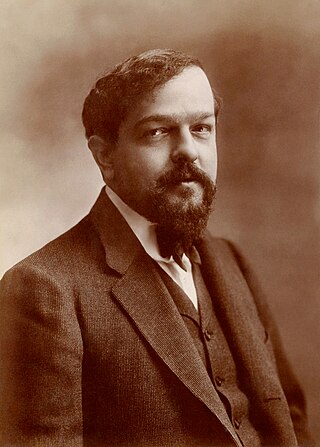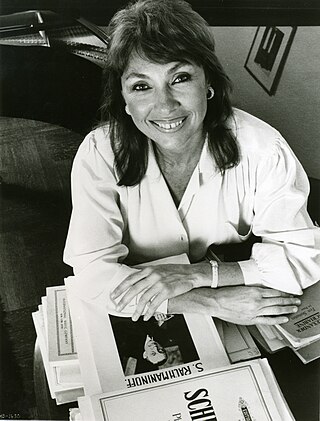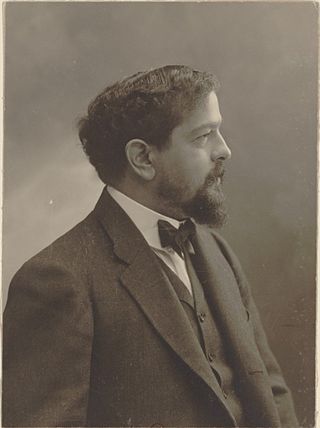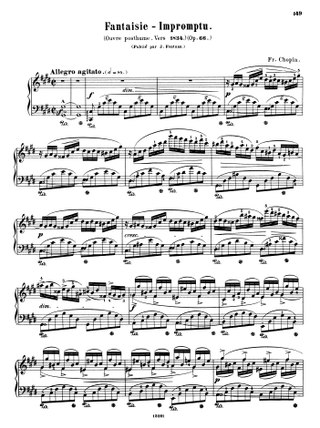Arabesque is a form of artistic decoration consisting of plant tendrils, leaves and flowers, very common in Islamic art. It may also refer to:
Arabesque is a form of artistic decoration consisting of plant tendrils, leaves and flowers, very common in Islamic art. It may also refer to:

(Achille) Claude Debussy was a French composer. He is sometimes seen as the first Impressionist composer, although he vigorously rejected the term. He was among the most influential composers of the late 19th and early 20th centuries.
Spring(s) may refer to:

A nocturne is a musical composition that is inspired by, or evocative of, the night.

Lyle David Mays was an American jazz pianist, composer, and member of the Pat Metheny Group. Metheny and Mays composed and arranged nearly all of the group's music, for which Mays won eleven Grammy Awards.
Suite bergamasque is a piano suite by Claude Debussy. He began composing it around 1890, at the age of 28, but significantly revised it just before its 1905 publication. The popularity of the third movement, Clair de lune, has made it one of the composer's most famous works for piano, as well as one of the most famous musical pieces of all time.

Hélène Rose Paule Grimaud is a French classical pianist and the founder of the Wolf Conservation Center in South Salem, New York.
Prelude may refer to:

Ruth Laredo was an American classical pianist.

Prélude à l'après-midi d'un faune, known in English as Prelude to the Afternoon of a Faun, is a symphonic poem for orchestra by Claude Debussy, approximately 10 minutes in duration. It was composed in 1894 and first performed in Paris on 22 December 1894, conducted by Gustave Doret. The flute solo was played by Georges Barrère.

A character piece is a musical composition which is expressive of a specific mood or non-musical idea.
A ballade, in classical music since the late 18th century, refers to a setting of a literary ballad, a narrative poem, in the musical tradition of the Lied, or to a one-movement instrumental piece with lyrical and dramatic narrative qualities reminiscent of such a song setting, especially a piano ballade.
An arabesque is a type of music which uses melodies to create the atmosphere of Arabic architecture. The term and themes are borrowed from the art term arabesque, rather than stemming from Arabic music. It is a highly ornamented style.
Voiles is a musical composition for solo piano by French composer Claude Debussy that was composed in 1909. It is the second piece in Debussy's first book of préludes, published in 1910. The title may be translated as either veils or sails; both meanings can be connected to the musical structure.
The New York Philomusica Chamber Ensemble is a musical ensemble founded in 1971 by A. Robert Johnson in New York City. The group presents an annual concert series of chamber music in New York City, Rockland County, and occasionally performs on tour. The ensemble owns the New York Philomusica Records label, which they use to sell albums of their music.
The Two Arabesques, L. 66, is a pair of arabesques composed for piano by Claude Debussy when he was still in his twenties, between the years 1888 and 1891.

George Copeland was an American classical pianist known primarily for his relationship with the French composer Claude Debussy in the early 20th century and his interpretations of modern Spanish piano works.
Robert Schumann wrote his Arabeske in C major, Op. 18 in 1839 when he was 29 years old, dedicating it to Frau Majorin Friederike Serre auf Maxen, to whom he also dedicated his Blumenstück in D-flat, Op. 19. In the autumn of 1838 Schumann had left Leipzig for Vienna. His relationship with Clara Wieck had reached a point of no return, as her father vehemently opposed anything that might interfere with his daughter's career as a pianist and strongly disapproved of Schumann as a possible son-in-law. Geographically yet not emotionally detached from Clara, he was able to communicate with her only through letters and in his own music. This has been proposed as an explanation for this work, which alternates passages of wistful longing with more robust, declamatory episodes.

The Piano Quartet in E♭ major, Op. 47, was composed by Robert Schumann in 1842 for piano, violin, viola and cello. Written during a productive period in which he produced several large-scale chamber music works, it has been described as the "creative double" of his Piano Quintet, finished weeks earlier. Though dedicated to the Russian cellist Mathieu Wielhorsky, it was written with Schumann's wife Clara in mind, who would be the pianist at the premiere on 8 December 1844 in Leipzig.
Tiffany Poon is a Hong Kong-born American classical pianist and vlogger, residing in New York City.

Three Fantasiestücke for piano, Op. 111, were written in 1851 by Robert Schumann.